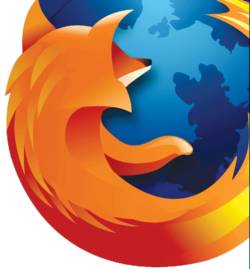The changing face of the Fourth Estate
The changing face of the Fourth Estate

In his novel, The Fourth Estate, Jeffrey Archer made the following observation: “In May 1789, Louis XVI summoned to Versailles a full meeting of the ‘Estates General’. The First Estate consisted of three hundred clergy. The Second Estate, three hundred nobles. The Third Estate, six hundred commoners. Some years later, after the French Revolution, Edmund Burke, looking up at the Press Gallery of the House of Commons, said, ‘Yonder sits the Fourth Estate, and they are more important than them all.’”
The Fourth Estate – a term exemplifying the working press – is also known as the Fourth Pillar of democracy, and journalists are supposed to act as watchdogs of the democratic system. This Estate has undergone through a series of changes since it came to occupy a pivotal position in the free world. From Johannes Gensfleisch zur Laden zum Gutenberg (the man who printed the first Bible in 1455 in Germany) to Acta Diurna (government announcement bulletins made public by Julius Caesar) to Guglielmo Marconi (inventor of radio) and to John Logie Baird (inventor of television), and from newspapers, journals, tabloids to 24x7 satellite news channels and the internet – mass media have transformed tremendously, for better and for worse. The irreversible changes are there for us to observe, to experience. And these changes have also been responsible for redefining the nature and role of the Fourth Estate.
Till the time when globalization was at a tender age, media were free from the control of the market or, in other words, news was not market-driven. In earlier days, journalists, with no professional education, toiled to bring out truthful information in their respective newspapers or journals. They disseminated information objectively with utmost integrity and free from subjectivity. The truth, the whole truth, and nothing but the truth was the polestar of the members of the Fourth Estate till the time money was not the only factor driving media houses or media professionals.

Since James Augustus Hickey’s Bengal Gazette or the Calcutta General Advertiser - the first English language newspaper, and indeed the first printed newspaper, to be published in the Indian sub-continent – the face of the Indian media has undergone tremendous transformation. Bengal Gazette was a weekly newspaper founded in 1779 in Calcutta, the capital of British India. During the Indian Freedom Struggle, the press, English language and vernacular, played a significant role in moulding public opinion and nationalism. The British government in India adopted several stringent measures like the Vernacular Press Act to clip the ubiquitous and influential wings of the Indian press. In those days, journalism was more of a ‘mission’ than a ‘profession’. Journalists were missionaries of Indian nationalism to enlighten the citizens on the maladies of foreign domination and the fruits of self-rule. Newspapers, working under several constraints, contributed whatever they could to the liberation of India from the mighty brutish British regime.
The Fourth Estate has changed with time. To most, journalism is no longer a mission, but a lucrative profession. The expansion of globalization has made the media world highly competitive and profitable. If one reads Archer’s The Fourth Estate, one would grasp the underlying connotations of the market on media. Archer often bases his protagonists on real people. In this illustration, the rival newspaper magnates were modelled on the late Robert Maxwell and Rupert Murdoch. The Fourth Estate is a timely and compelling story of two men who, though they come from totally different backgrounds, stand face-to-face on the highest cliff, prepared to risk everything to crush each other and control the biggest media empire in the world. 
When we talk about media, we cannot ignore Herbert Marshall McLuhan, the Canadian media guru who is known for the expressions the medium is the message and global village. McLuhan was a prominent face in media discourse from the late 1960s till his death and continues to be an influential and controversial figure. In the early 1960s, McLuhan wrote that the visual, individualistic print culture would soon be brought to an end by what he called “electronic interdependence”: when electronic media replace visual culture with aural/oral culture. In this new age, humankind will move from individualism and fragmentation to a collective identity, with a “tribal base”. McLuhan’s coinage for this new social organization is the global village.
Satellite television and the Internet have indeed turned the world into a village. The intrusion of television channels into households 24x7 has made a mockery of the artificial boundaries put up by nations. People in Shillong can now witness live events taking place in New York or Kabul or Islamabad or any other place in the world. The global market, complemented with high technology, has augmented the functioning of media worldwide. Hundreds of satellite channels are in the global market, offering
numerous choices to the consumers. Why did the Kargil War of 1999 or the gory Gujarat riots of 2002 or the Mumbai attacks of November 2008 had impacted India and Indians to a large extent? All thanks to satellite television for covering the events ‘live’ – reporting the events as they happened.
Connecting from one end of the world to the other is just a click away. The psychological divide between nations and peoples has been minimized to a large extent thanks to the World Wide Web. The Internet made way in the early 1990s, some 30 years after McLuhan’s coinage of the term global village, and undeniably, it has revolutionized the dissemination of information. And without an iota of doubt, the technological revolution in television and Internet has changed the face of the Fourth Estate. Paperless journalism, online journalism, blogging, outsourcing of news publication, webcasting, disseminating news to mobile handsets et al have changed the working of media worldwide. By and large, media today have become more participatory in nature. People are not mere bystanders any longer, and they voice their opinions, anger, grievances through the different forms of media with the aid of technology.
However, in spite of all the merits, globalization has aggravated worldwide poverty. Ruthless capitalists lobby in their respective nations to have more access to wealth that is present in other economies, especially in the Least Developed Countries (LDCs). Multi-National Corporations (MNCs), with the backing of their individual political regimes, have made their presence felt in almost all continents, countries, societies, economies to fulfill their greed. And media have also been affected by the ill effects of globalization. By and large, media are in the hands of a handful of monopolists. Kingman Brewster, Jr. once remarked that “With all the mass media concentrated in a few hands, the ancient faith in the competition of ideas in the free market seems like a hollow echo of a much simpler day.”
Newspapers and news channels portray stories which are determined by the free market. In other words, news is now market-driven instead of people-driven. The market is the main determinant of mainstream media – print, electronic or web. ‘Advertorials’ are a common feature in today’s media for want of larger revenue through advertisements. The media in the West play a dominant role not only in their respective backyards, but also throughout the world. In the words of Akbar S. Ahmed, “The American mass media have achieved what American political might could not: World domination.”
In conclusion, the Fourth Estate would do well if its members continue to be people-friendly leaving aside the forces of the market. Media, one of the major platforms to mould public opinion, have to see that disseminating facts, without fear of favour, affection or ill will, to the people is not hampered. As the prime watchdog of democracy, media would do well to use technology for the benefit of denizens irrespective of all differences. The ‘breaking news bug’ should find a panacea because sensationalism/yellow journalism/headlines twice the size of the events/when a dog bites a man that is not news, but when a man bites a dog that is news (Charles Anderson Dana) cannot create an enlightened society.

